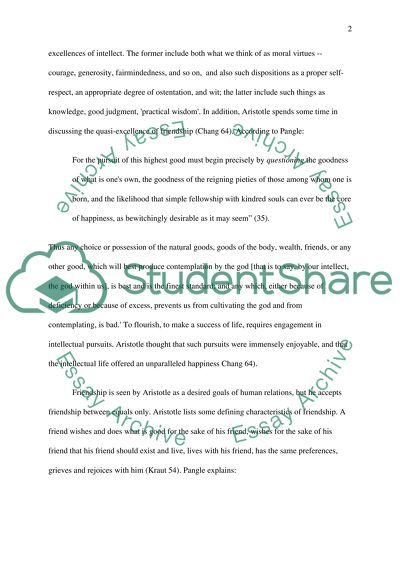Cite this document
(“Aristotle and Relationship at Work Essay Example | Topics and Well Written Essays - 2000 words”, n.d.)
Aristotle and Relationship at Work Essay Example | Topics and Well Written Essays - 2000 words. Retrieved from https://studentshare.org/miscellaneous/1526589-aristotle-and-relationship-at-work
Aristotle and Relationship at Work Essay Example | Topics and Well Written Essays - 2000 words. Retrieved from https://studentshare.org/miscellaneous/1526589-aristotle-and-relationship-at-work
(Aristotle and Relationship at Work Essay Example | Topics and Well Written Essays - 2000 Words)
Aristotle and Relationship at Work Essay Example | Topics and Well Written Essays - 2000 Words. https://studentshare.org/miscellaneous/1526589-aristotle-and-relationship-at-work.
Aristotle and Relationship at Work Essay Example | Topics and Well Written Essays - 2000 Words. https://studentshare.org/miscellaneous/1526589-aristotle-and-relationship-at-work.
“Aristotle and Relationship at Work Essay Example | Topics and Well Written Essays - 2000 Words”, n.d. https://studentshare.org/miscellaneous/1526589-aristotle-and-relationship-at-work.


